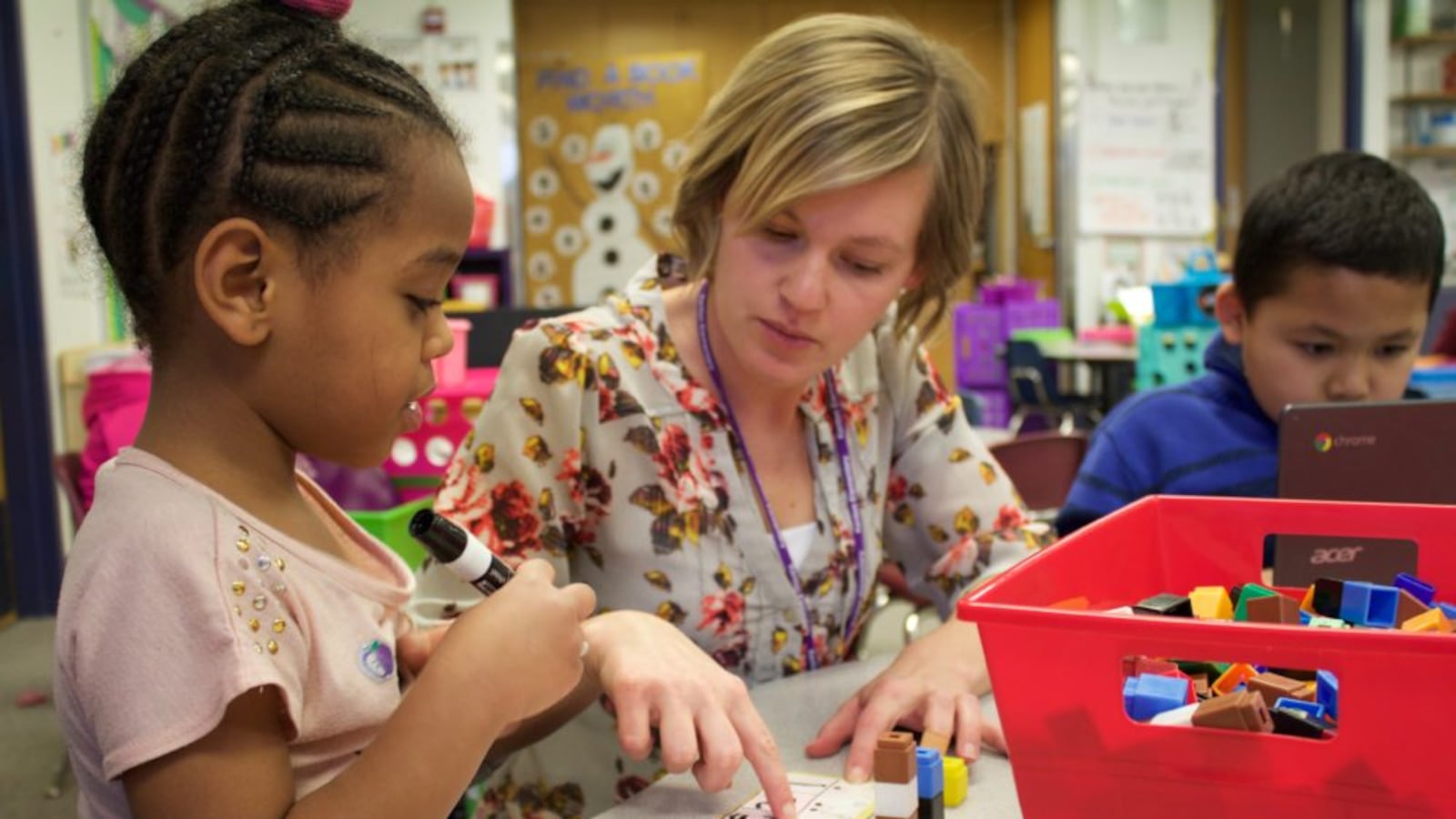More Colorado children than predicted have enrolled in full-day kindergarten, but these additional students are unlikely to break the state budget — in part because Colorado has fewer students in the older grades.
Complete pupil counts for the 2019-20 school year won’t be released until later this month, but early numbers provided to legislative analysts and included in the most recent state budget forecasts showed that 23,802 additional students enrolled in kindergarten this school year, compared with 2018-19. That’s about 1,400 more students than legislators had assumed when they included full-day kindergarten in the budget for the first time and represents 92% of eligible students.
That means the additional cost associated with full-day kindergarten is $204 million, of which the state is responsible for $198.3 million, according to legislative analysts. That’s about 8.4% more than was budgeted.
However, those kindergartners account for almost all the 3.5% overall student growth from last year, and local property taxes will generate more money than was predicted.
That means the state only needs to come up with an extra $9 million, less than 0.2% of the more than $4.6 billion that Colorado will spend on K-12 education this budget year. Birth rates have remained lower since the Great Recession, and enrollment is expected to be nearly flat in the near future.
Expanding full-day kindergarten and making it free to families was one of Gov. Jared Polis’ top priorities last year, and funding it required some twisting and tweaking of forecasts.
Polis’ original budget request was for $227 million, an amount that assumed 100% participation by eligible children and that caused angst among the budget writers. Democrats on the Joint Budget Committee spent hours holed up in the governor’s office before ultimately agreeing to include a smaller amount on the assumption of roughly 85% participation.
Until this year, the state only paid for a little more than half the cost of kindergarten, which is not mandatory in Colorado. Some districts charged parents tuition, while others used federal anti-poverty funds or state funds intended to help struggling readers to offset the cost of full-day programs. Still others, including Boulder Valley School District and Cherry Creek School District, offered primarily half-day programs.
Even before the final budget was adopted, districts with large numbers of students in half-day kindergarten programs told Chalkbeat that they planned to switch to full-day, raising doubts about the budget projections.
Robust enrollment is a win for education advocates, who believe that offering full-day kindergarten to more students will yield improvements in everything from third-grade reading to high school graduation rates.
Nonetheless, the higher-than-projected cost, while relatively small, could weigh on future education funding requests from the governor. Kindergarten was one of a number of Democratic initiatives from the 2019 session that came with a big price tag, and lawmakers are expected to take a more cautious approach this year. For example, both Democrats and Republicans have said they’re not sure how to pay for Polis’ $27 million preschool expansion request.

